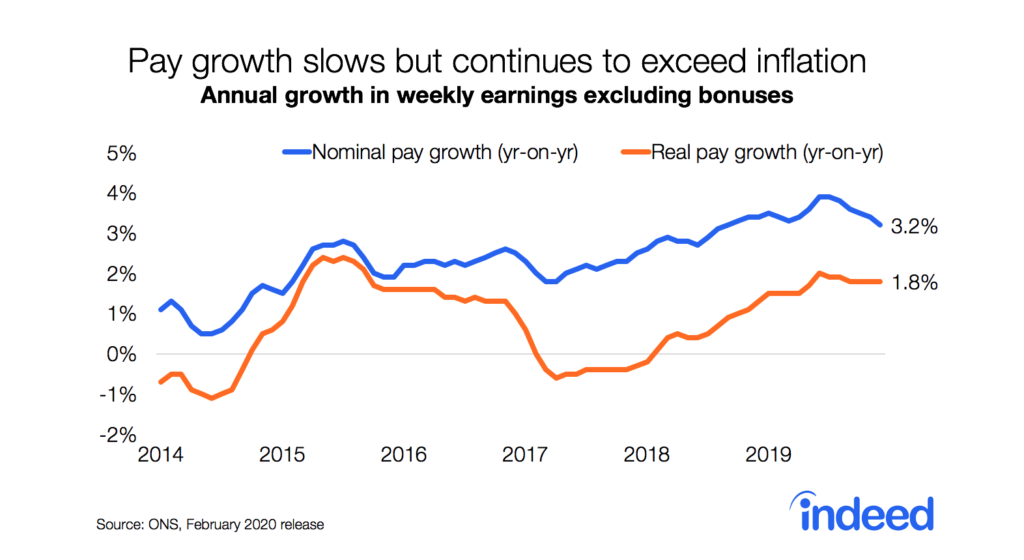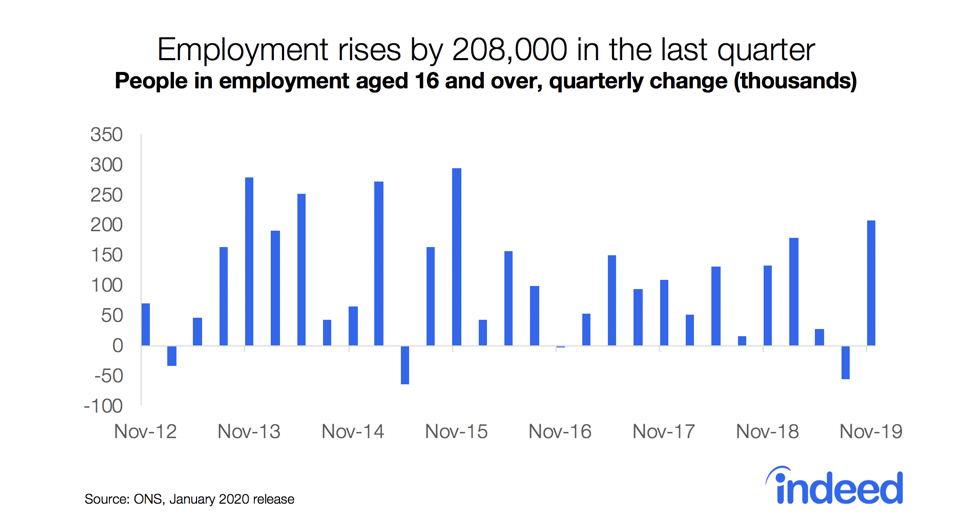Key points
- Demand for AI workers is strengthening. AI-related postings, as a share of all UK postings on Indeed, are up more than threefold over the past three years.
- Jobseekers are increasingly interested in these jobs: searches for AI-related jobs, as a share of all searches on Indeed, have more than doubled over the past three years.
Advances in technology and artificial intelligence (AI) have stoked fears of large-scale job losses. While new technologies will destroy some jobs, they will also create new jobs and pave the way for cutting-edge industries. New AI technologies require highly skilled workers who can develop and maintain complex systems and applications. Using Indeed’s data on job postings and job search activity, we can observe the emergence of this sector in real-time.
To assess changes in the demand for AI-related work, we utilised Indeed job posting data to determine the job titles that most often referred to ‘artificial intelligence’ and ‘machine learning’ in their job descriptions.
Employer demand for AI-related jobs has more than tripled over the last three years, growing steadily upward.
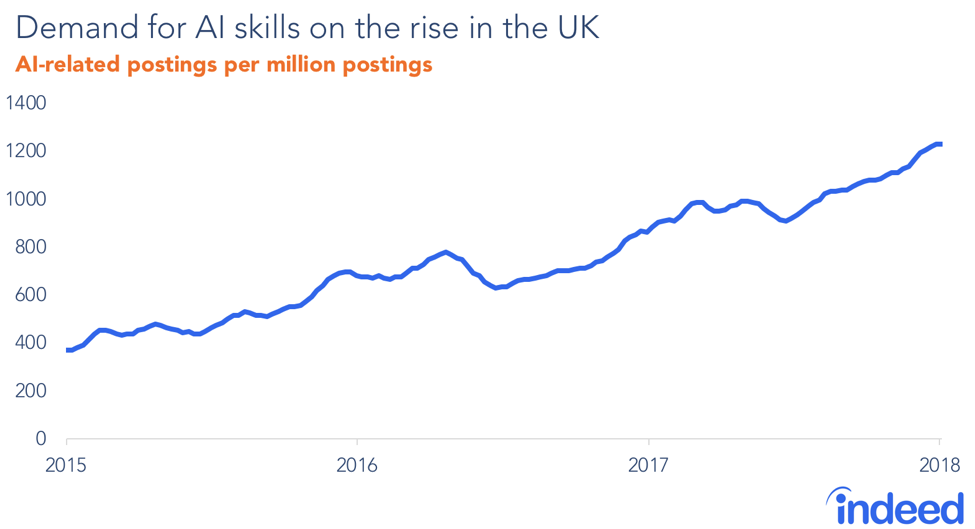
Although the number of jobs in AI remain relatively small – highlighted by the week-to-week volatility in the number of job postings – the trend is unmistakable: the sector is getting bigger by the year.
The top job titles are typically data scientists, of the senior and junior variety. The role of data scientists is much broader than simply creating AI, but they play a pivotal role in creating the algorithms that teach machines how to use and interpret data. Everyday we are dealing with the end result of their work, whether it be via recommendations for online shopping, what we see on social media, or even the news that we consume.
The demand for AI skills in the UK is actually ahead of similar countries like the United States, Canada, and Australia as a share of total postings.
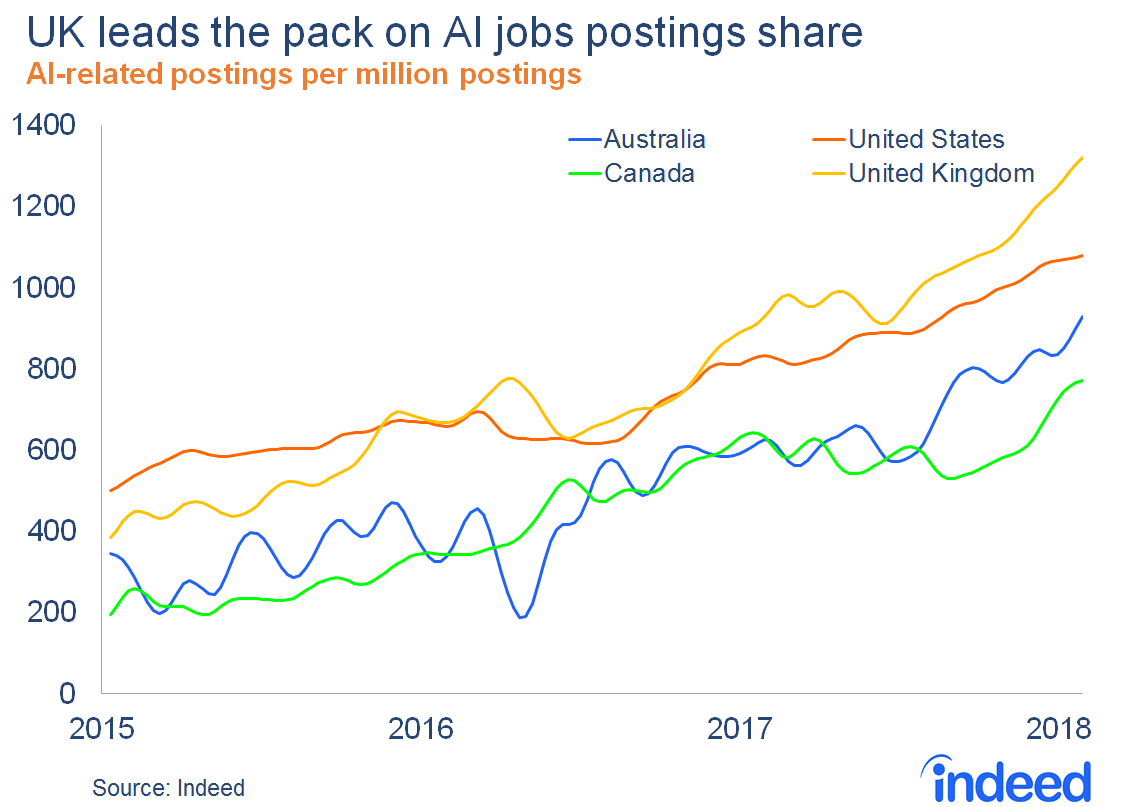
Upward trend in jobseeker interest accompanies the growth in postings
From 2015 to 2018, search activity in AI-related jobs, per million searches, doubled. The AI sector is clearly in a developmental phase, growing by the day, and job seekers are responding to the growing opportunities.
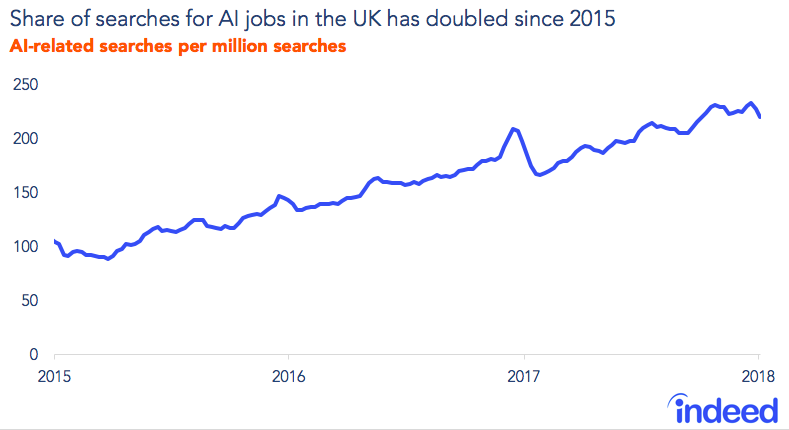
What is clear from the data, however, is that we are witnessing the emergence of an industry that is changing rapidly. Demand for AI-related skills will only continue to grow as the technology matures and becomes a central part of business operations. And the jobs created will continue to broaden, creating new opportunities for highly-skilled job seekers.
Methodology
For this research we classify AI-related jobs as job titles in which a substantial share of job posting descriptions include the terms ‘artificial intelligence’ and ‘machine learning’. The job posting trends reflect the change in volume of these specific job titles, which in the UK were ‘machine learning engineer’, ‘computational linguist’, ‘data scientist’, and ‘computer vision engineer’. Data scientist was a large share of the AI job postings. To focus on job seeker interest in these AI-related jobs, we measure volume of job searches which contain any variant of those aforementioned AI-related job titles. All measures of job postings and job searches over time are calculated as a share of total job postings and job searches, respectively, on the site to account for changes in site activity over time. This research follows up on Indeed’s work featured in the recent AI Index report, a project developed by Stanford University.




